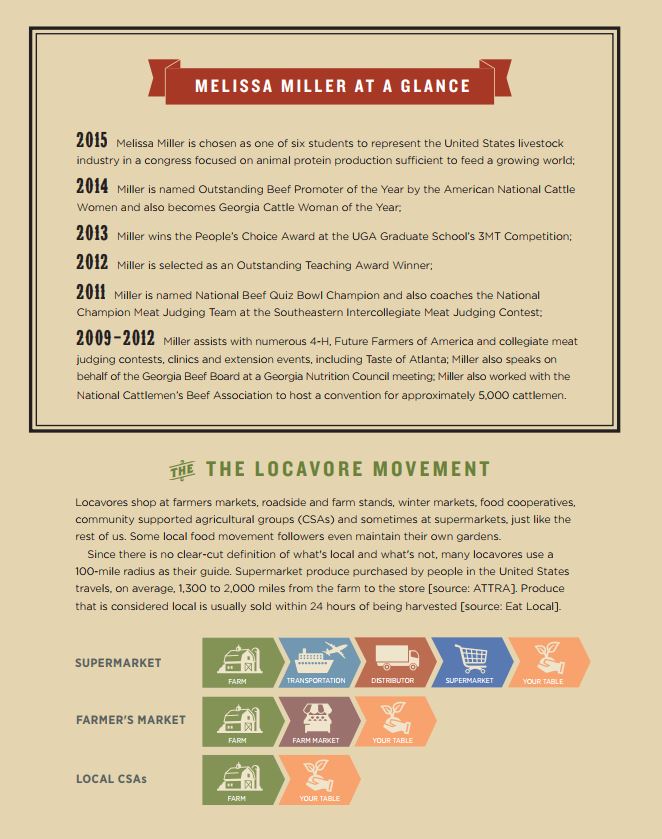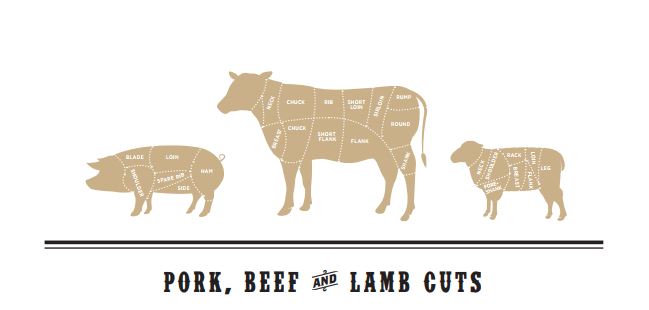Melissa Miller
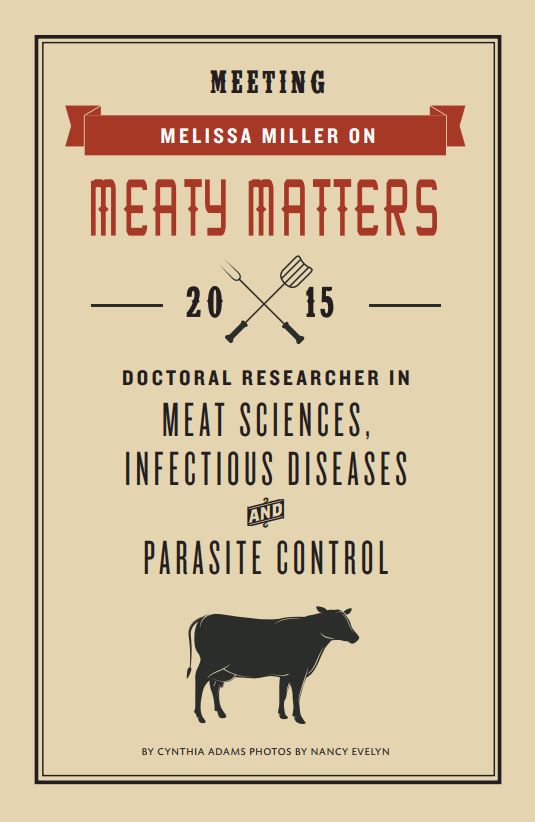
Miller’s present and future work allows for a return to her favorite environment since childhood — the life of a farm.
Last year, Melissa Miller stood in a grocery store demonstrating how best to cook beef to anyone with a few minutes to watch or chat. It was a meet-the-public stint for a woman who had spent much of her young life around horses and cattle. And she had spent many such hours promoting beef. It wasn’t a glorious job, but as Georgia Cattle Woman of the Year, the consumer education role went with the title. She wasn’t complaining either; the conditions were actually posh compared to cattle lots, where Miller has logged many hours—now years.
If Miller could engage a passing shopper, which wasn’t too hard because she knows her subject, given even half a chance, she would exchange ideas or tips. It was generally to offer preparation ideas, or sometimes just to suggest her favorite easy beef dish (a beefy cheesy salsa dip). The recipe? Just Velveeta cheese, ground beef, onion, salsa. I did that at the State Fair,” Miller says with a smile.
“I went to grocery stories, talked with housewives about how to cook beef, answered questions, and discussed temperatures for optimal cooking.”
She gave pointers and pushed the advantages of one cut over another. “Ribeyes or higher quality cuts with a greater amount of marbling are great for grilling. All that intramuscular fat adds flavor.” There is a part of her, she admits, that would have loved to have her own television show, cooking and teaching the public.
It happens that Miller, who is in the dual DVM/PhD program, will complete her doctorate in Infectious Disease next year and immediately begin her DVM studies, and is more often in a lab, classroom, or cattle lot than anywhere else. (Or she is working with UGA’s Meat Judging Team, which Miller started in 2010 when she came to UGA from the University of Florida.) Under her tutelage, the team shot to first place at the Southeastern Intercollegiate Meat Judging Contest for their knowledge of beef judging, lamb judging, specifications, total placings and reasons. They came in second in overall beef, third in beef grading and fifth in pork judging, competing against 10 teams from eight universities.
“I’ve always had a passion for livestock,” says Miller, who grew up in central Florida in Brandon, where her family had Angus cattle and horses. Her parents had other jobs, and helped run a family legacy farm. “I loved showing Angus cattle across the country.” She has worked as a ranch assistant at Partisover Ranch, assisting with the daily care of approximately 200 head of Angus/Simmental cattle. She also works closely with youth who purchase show heifers to ensure a positive show experience for them. Halter breaking calves, and working with youth in preparation for show events is one aspect of that mentoring.
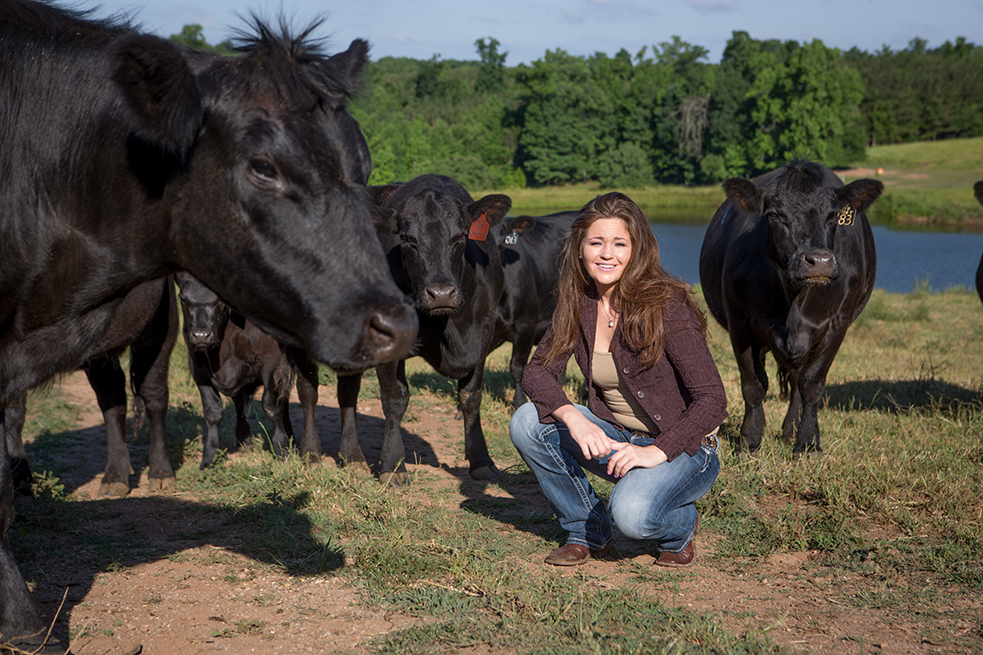
Melissa Miller at Partisover ranch with cows
Miller grew up riding English and liked jumpers. By the time she was a teenager, she knew she wanted to be a veterinarian. She won the title of Miss Florida Angus when 16, and was a runner up for Florida Cattleman’s Sweetheart. “I think it made me fall in love with agriculture even more. I met more farmers. They love what they do and want to produce better food and take care of their animals.”
As an 18-year-old undergraduate in Gainesville, Fla., Miller was up before dawn working 6:00 a.m. shifts on a 70-acre farm. She was responsible for the daily care of nearly 60 horses as a student team’s worker in the University of Florida Horse Teaching Unit. “It’s kind of hard but kept you out of trouble for sure. I went there five days after high school graduation and lived in a double wide trailer for women students.” She learned to work elbow-to-elbow with other women eager to prove their mettle.
Miller also proved to be a team player. She has worked on numerous teams, learning to manage farms and hire people. In Florida, she wound up on a horse judging team, traveling the country visiting horse farms and learning to evaluate horses. Miller studied animal science and learned to evaluate cattle, pig, and lamb. She attended a meat cutting school to master beef, pork and lamb carcasses and cuts. In 2009, Miller won top honors when she became the National Beef Grading Champion.
“I was challenged to determine the quality and yield grade of beef carcasses as compared to an official USDA meat grader,” Miller explains. “I had to provide written reasons why one meat carcass was better than another. I learned about the end product of the livestock industry, how meat is made from farm to fork.”
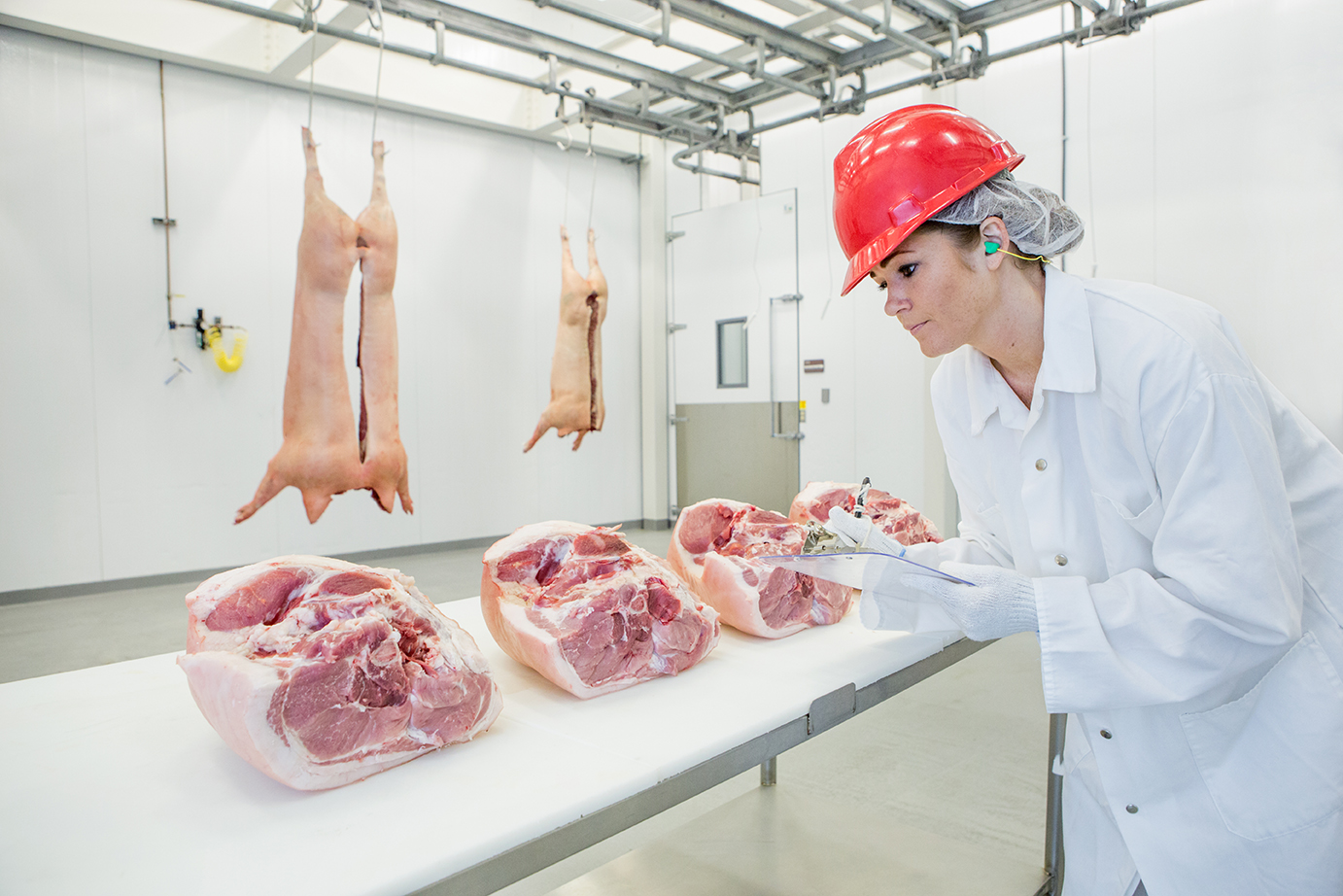
Melissa Miller in the meat lab
In January of 2009, Miller was introduced to the top echelon of meat associations. “I served as an intern for the cattle industry annual convention in Phoenix, Az., as well as being part of the convention.” That summer, she became an intern for the American Angus Association, and assisted with national contests. She traveled across the country to events as a representative of the association. Visiting packing plants, Miller realized “how much science goes into producing a good, safe food product, and how to produce this much protein efficiently.” All her fellow meat judging team members in Florida went on to graduate school. By now, Miller had all the prerequisites to apply to veterinary school.
In coming to UGA in 2010, Miller found a true mentor when she met her major professor, T. Dean Pringle. “Dean Pringle is in the department of animal science. He is a one-in-a-million type person—one of those people that is life changing,” she praises. Pringle took Miller out to the University-owned farm. She says he helped foster her passion for agriculture, going the extra mile.
“Dr. Pringle helped me find a farm to live at where I could trade work for rent.” She wound up writing a master’s thesis under Pringle on how pork tenderness, juiciness, and flavor are enhanced through the use of a pork protein solution—which sounds very like the basics of a good barbecue. But personally, Miller likes nothing better than eating a good steak. If she wants to impress someone, she cooks her personal favorite, a good ribeye. Youthful looking at age 27, Miller frequently gets carded when she orders a glass of wine when dining out.
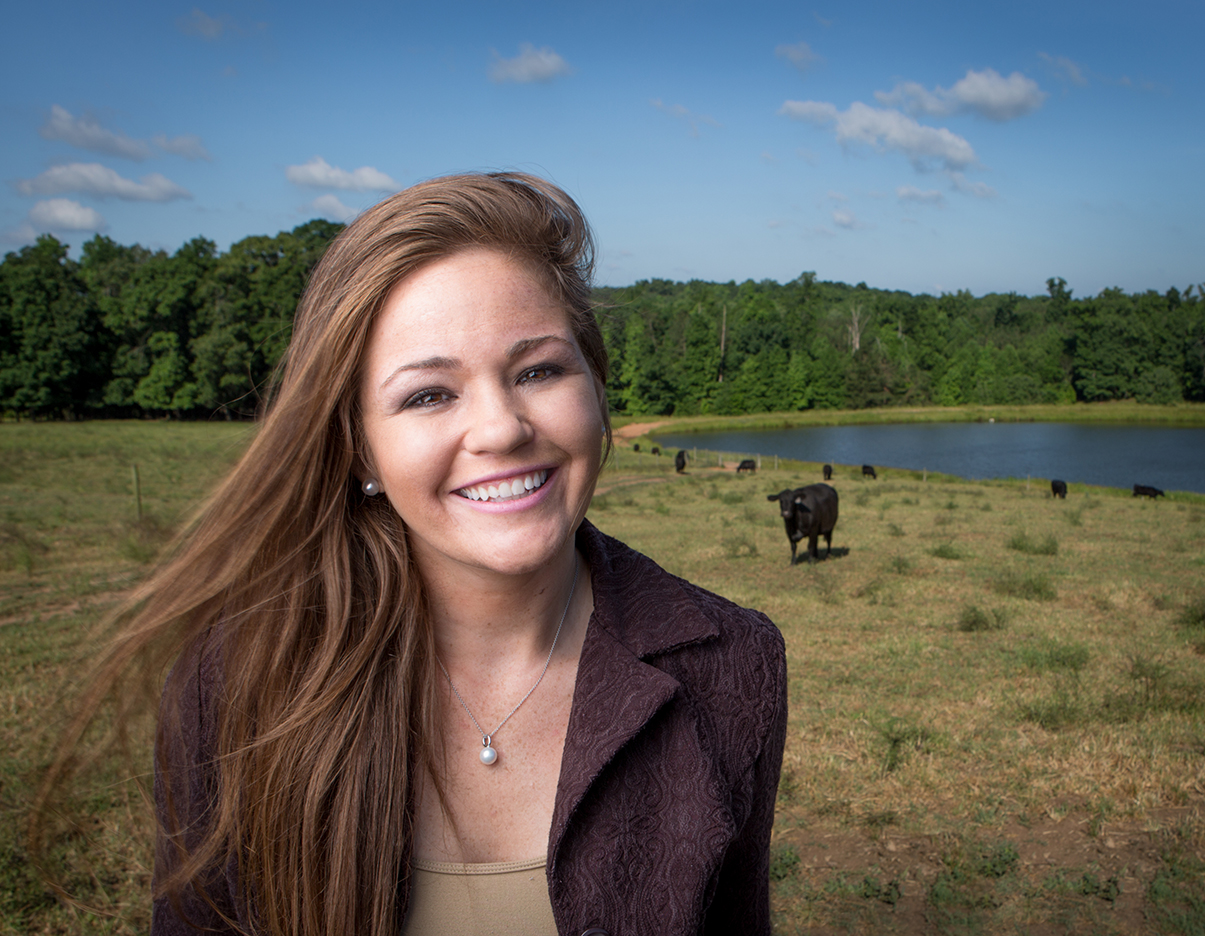
Melissa Miller at Partisover ranch with cows
The locavore movement has also influenced Miller. “Beforehand, my family had a small farm but I didn’t know much about the farm to food movement.” Back home, Miller’s mother is a letter carrier and her father a watch engineer for Tampa Electric Co. The family kept 20 head of cattle on a farm that was originally her great grandparents’.
Miller returned to the farm for her doctoral research after a dual degree track. “I transitioned back, focusing on effective parasite control in livestock.” She studies worms that infect the gastrointestinal tract of cattle, sheep, and goats, causing animals to eat less, absorb nutrients less efficiently and potentially become anemic. Miller says “When we effectively control parasites, livestock grow more rapidly and are healthier, producing meat more efficiently, which is essential to feeding a growing world.”
Her experience with research through a veterinary medical scientist training program has given her both the intensive understanding of parasitology, and a far-reaching grasp of animal science as a generalist. It also feeds the underlying passion that led Miller to science from the start—the great outdoors and her love of animals.
Miller’s present and future work allows for a return to her favorite environment since childhood— life on a farm.
For Miller, an ideal day would be exquisitely simple—and, yes, one spent on a farm. She fantasizes about her future once graduate studies are done.
“I would be living on a farm, waking up at 5:00 a.m. I still love to check my farm and see if anything exciting happened and to be outside, spending time there. Enjoying a beautiful sunrise; spending time with the horses.”
After her morning outdoors, Miller says she would still devote the balance of her day to ongoing research in meat sciences, infectious disease, and parasite research. “It doesn’t matter—I want to be touching, learning.”
After lunch with good friends and family, Miller says she would probably attend a seminar in the afternoon, or a conference, networking with researchers “Or people excited about what they doing.”
The ideal day would end with the perfect evening, she says with a broad smile. “That night, I would cook a great steak!” This, in Miller’s educated opinion, would either be a prime steak or a ribeye.
